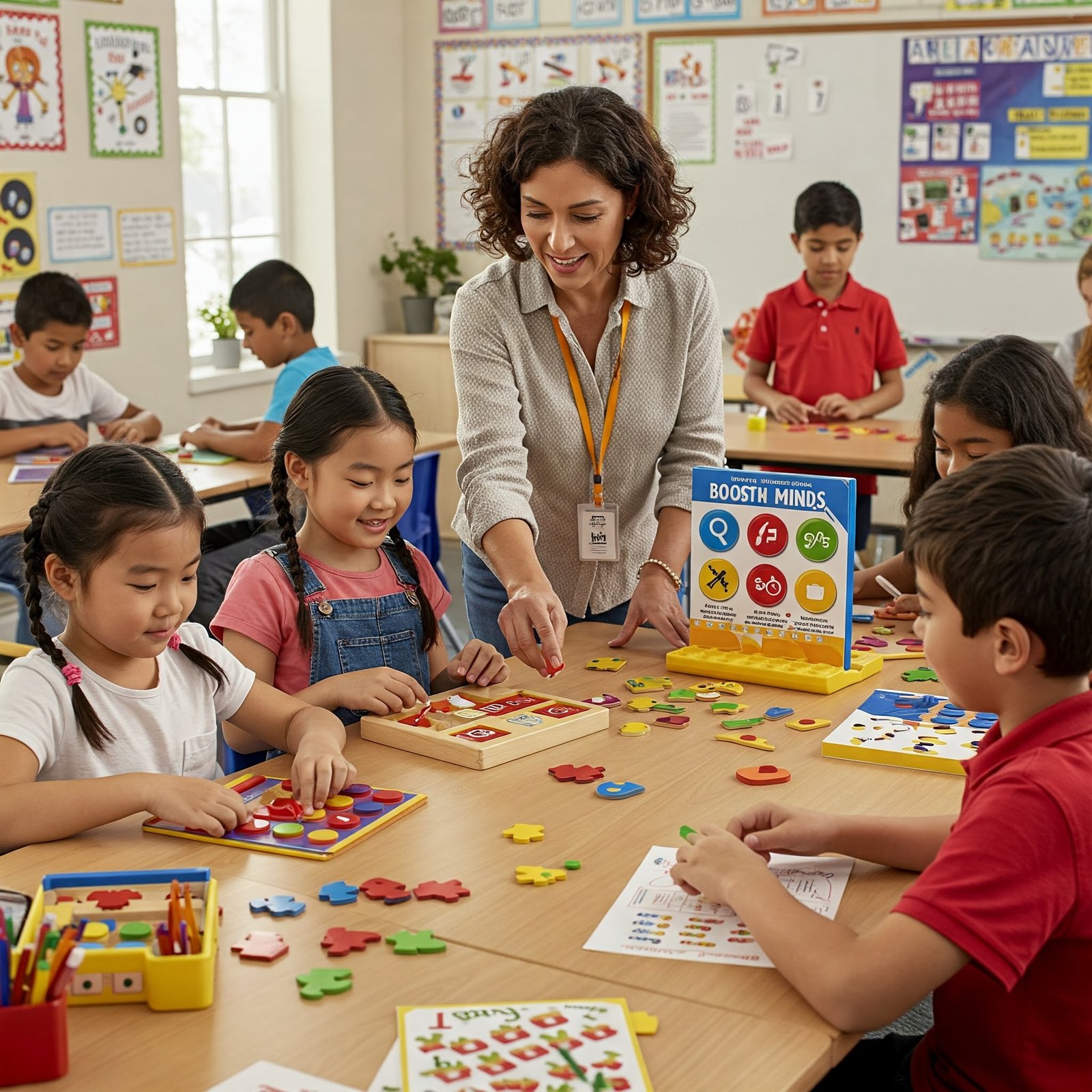Blog Details Home / Blog Details

Boosting Young Minds: Cognitive Training in Classrooms
In today’s rapidly changing world, simply memorizing facts isn’t enough for students to succeed. More and more educators are recognizing the importance of cognitive training in classrooms — structured activities and exercises designed to boost core thinking skills like attention, memory, reasoning, and problem-solving.
What is Cognitive Training?
Cognitive training refers to targeted techniques and practices that help children develop and strengthen their mental abilities. Think of it as a workout, but for the brain! Just as physical exercise improves muscle strength, cognitive exercises can enhance the brain’s capacity to process and manage information.
Key cognitive skills include:
Attention: Focusing on tasks without distraction.
Memory: Retaining and recalling information.
Processing Speed: Quickly and accurately working with information.
Executive Function: Planning, organizing, and managing tasks effectively.
Why Cognitive Training Matters in the Classroom
The classroom is not just a place to learn facts; it's a space where foundational brain skills are built. Research shows that students with stronger cognitive skills tend to perform better across subjects, from math to reading. Moreover, cognitive training can especially benefit children with learning difficulties, helping to close the gap with their peers.
Benefits include:
Improved academic performance
Better focus and reduced impulsivity
Enhanced problem-solving abilities
Greater confidence and motivation
Effective Cognitive Training Activities
Teachers don’t need expensive tools to incorporate cognitive training. Here are some simple yet effective activities:
Memory Games: Matching cards, storytelling, or recall exercises.
Brain Teasers & Puzzles: Sudoku, crosswords, or logic challenges.
Mindfulness & Meditation: Helps improve attention and reduce stress.
Strategy Games: Chess or board games that encourage planning and foresight.
Interactive Group Tasks: Projects that require collaboration and critical thinking.
Building Cognitive Skills Naturally
Incorporating cognitive training doesn’t mean overloading students. Instead, it should feel like an integrated part of the learning experience. Teachers can:
Ask students open-ended questions.
Encourage them to explain their thinking.
Rotate activities to challenge different cognitive skills.
Provide constructive feedback that promotes self-reflection.
Final Thoughts
As we look to nurture not just smarter students, but well-rounded thinkers, cognitive training stands out as a valuable tool in the educator’s toolkit. By strengthening the underlying mental skills, we empower children to tackle academic challenges and real-world problems with confidence and creativity.
Let’s invest in their minds today — because every child has the potential to think, learn, and grow beyond limits.
Leave A Comment
Sing in to post your comment or singup if you don’t have any account.


0 Comments